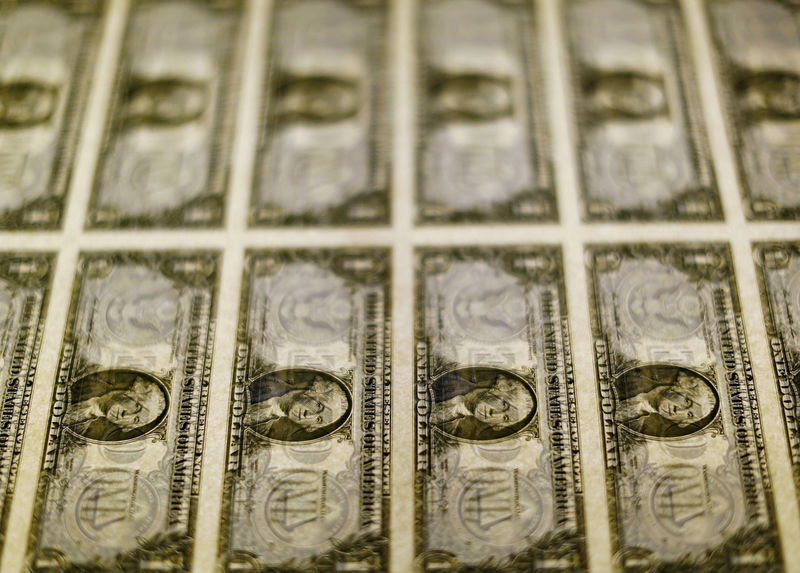 © Reuters.
© Reuters.
Investing.com-- Most Asian currencies kept to a tight range on Monday, while the dollar steadied near three-month highs as more signs of sticky U.S. inflation saw traders largely phase out expectations of early U.S. interest rate cuts.
The dollar index and dollar index futures hovered near three-month highs in Asian trade, after producer price index inflation data released on Friday read higher than expected for January.
The reading, which came just days after a strong consumer price index inflation reading, spurred more concerns that sticky inflation will keep the Federal Reserve from cutting interest rates early in 2024. Such a scenario bodes poorly for Asian currencies, with traders now pricing in the possibility of a U.S. rate cut only by June.
In Asia, Chinese markets resumed trade on a cautious note, as traders waited to see whether a spending boost during the week-long Lunar New Year holiday will persist in the coming weeks.
The yuan fell 0.1% and remained in sight of a three-month low, although further losses were limited by a strong daily midpoint fix from the People’s Bank of China. The central bank is also widely expected to keep its benchmark loan prime rate unchanged on Tuesday, leaving the rate at record lows.
Broader Asian units also kept to a flat-to-low range. The Singapore dollar moved little, while the South Korean won fell 0.3%.
The Australian dollar rose 0.1% in anticipation of the minutes of the Reserve Bank of Australia’s latest meeting, which are due on Tuesday. The RBA had warned during the meeting that it may not be done raising interest rates, which spurred some strength in the Aussie.
The Indian rupee was flat around the 83 level to the dollar, while the Thai baht rose sharply even as data showed the Thai economy grew less than expected in the fourth quarter.
Japanese yen flirts with 150 amid intervention watch
The Japanese yen flitted around the 150 level to the dollar, as traders remained wary of any potential government action in currency markets.
The yen had tumbled to three-month lows over the past week amid growing conviction that the Bank of Japan will be slow in tightening its ultra-loose monetary policy. Pressure from the prospect of higher-for-longer U.S. interest rates also weighed.
The 150 level is a key psychological point for the yen, given that sustained forays beyond 150 have attracted strong measures by the Japanese government in the past. Top-level ministers had offered verbal warnings to currency markets last week, after the yen’s latest tumble.
Recent data showed that the Japanese economy unexpectedly entered a recession in the fourth quarter of 2023.

